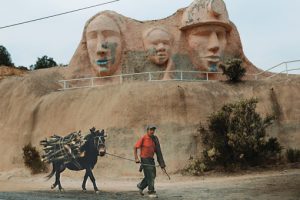
Country Study: Chile
Read the introduction here. Read a case study from Colombia here. Read a case study from Guatemala here. Read a case study from Peru here. While Chile has recognized and supported Indigenous rights through a variety of constitutional, legal and statutory norms, one of the most central—especially given the country’s extractive industry—is one of the … Read more
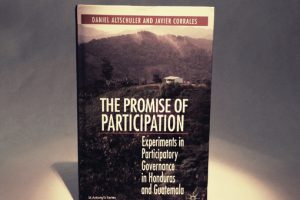
The Promise of Participation: Experiments in Participatory Governance in Honduras and Guatemala by Daniel Altschuler and Javier Corrales
Can democracy be built from the bottom up? Does community participation in small-scale initiatives increase civic and political engagement in the democratic process overall? In The Promise of Participation: Experiments in Participatory Governance in Honduras and Guatemala, Daniel Altschuler and Javier Corrales argue that efforts to engage local communities through community-managed schools (CMS) can increase … Read more
Ask the Experts: Consulta Previa
Sonia Meza-Cuadra answers: Governments aim to make decisions that will improve the economic and social development and welfare of their citizens. But historically, decisions affecting Indigenous and tribal people’s culture, ancestral lands and habitats have too often been made without their participation. ilo 169 and the UN Declaration on the Rights of Indigenous Peoples seek … Read more
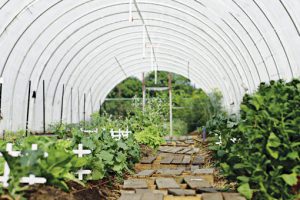
Produce on Wheels: Baltimore’s Pop-Up Mobile Farmers’ Market
Two to three days a week a bright green repurposed Washington Post truck roams the streets of northeast Baltimore. But instead of newspapers, it is delivering fresh fruit and vegetables. The produce is grown in the same neighborhood where it is consumed—on a six-acre “urban production farm” in Clifton Park. Through this mobile farmers’ market, … Read more
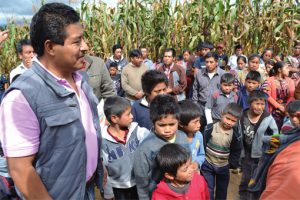
Political Innovator: Mardoqueo Cancax
Growing up in the Indigenous municipality of Patzún, Guatemala, Mardoqueo Cancax experienced first-hand the frustration of living in a community without good roads and adequate infrastructure. But when he became a parent, he felt even more keenly how such challenges imperiled the future of Patzún’s children. He joined a parents’ committee working on municipal development … Read more
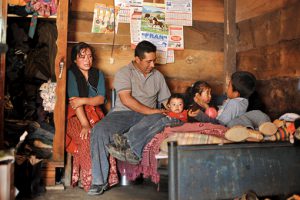
Dispatches: Guatemalan Migrants
Guatemalans returning home from the U.S. face unemployment, a maze of red tape—and social stigma. (slideshow available)
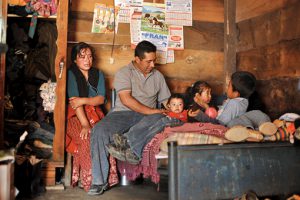
Dispatches: Guatemalan Migrants
Read a sidebar about voluntary return migration. Read a sidebar about the stigma that return migrants face. View a slideshow of return migrants in Guatemala below. Fidelino Gómez remembers fondly the years he spent in Iowa, where his middle child was born. Standing outside his one-room wood home in his native Guatemala, Gómez, 34, thumbs … Read more
Contested Lands, Contested Laws
Read more about proposals for regulation here. The right to free, prior and informed consent (FPIC), or consulta previa, has expanded throughout South America. Nine states have ratified the International Labour Organization’s Convention 169 (ILO169)—the principal treaty regarding consulta previa.* But regulations created by four of those states—Colombia, Chile, Peru, and Ecuador—contradict the commitments they … Read more
Business Responsibility to Respect Indigenous Rights
While numerous United Nations mechanisms1 have addressed the impact of business activities on Indigenous rights, it was only in 2011—with the UN Human Rights Council’s unanimous endorsement of the UN Guiding Principles on Business and Human Rights—that the role of businesses in respecting, or abusing, these rights was officially acknowledged. The Guiding Principles’ “do-no-harm” approach … Read more
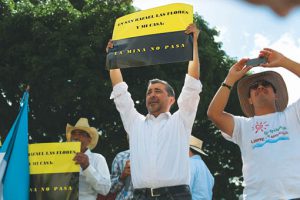
The Rise of Popular Consultations
On a hot Sunday morning in July 2013, the inhabitants of Piedras, a small municipality in the Colombian Andes, gathered to decide whether large-scale mining activities should be permitted in their territory. Piedras, traditionally a rice farming community, could soon be a neighbor to one of the biggest open-pit mining projects in the world. The … Read more
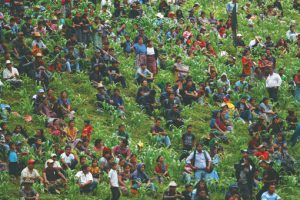
Two Views of Consulta Previa in Guatemala: A View from Indigenous Peoples
Read a view from the private sector here. Guatemala is a plurinational country that 22 Maya nations, Xinka, Garifuna, and Ladino people jointly call home. The efforts to gain access to natural resources—often without the consent of the communities affected—constitute another stage in the long history of dispossession and repression of Maya peoples since colonization. … Read more
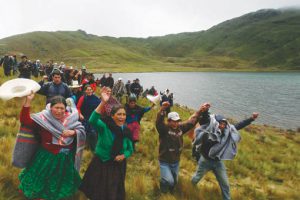
Reducing the Financial Risk of Social Conflict
Read a sidebar on foiled energy projects. The Peruvian economy has experienced exceptional growth in the past 10 years, with its GDP expanding at an average yearly rate of 6.5 percent. Much of this growth is due to the mining sector, which in 2012 accounted for 9.6 percent of Peru’s GDP, 1.3 percent of its … Read more
Getting to the Table
Mining is a lot more than complex technology, logistics and finance. While mineral extraction does require an amazing array of machinery, computers, and processes for transporting and treating the materials, it is just as much a social project that is negotiated and conducted within a social context. And just as the technological challenges require qualified … Read more
Security or Counterinsurgency in Rio favelas?
In anticipation of the 2014 World Cup, the Brazilian government enacted a policy to have special units of police occupy favelas in Rio de Janeiro. As of last week, one of Rio’s most dangerous shanty towns, Complexo da Maré, was taken over by close to 3,000 Brazilian troops. The shift—from using the elite Unidade de … Read more
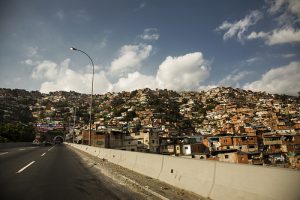
AQ Slideshow: Venezuela’s Colectivos
Caracas has been the scenario of violent clashes between Venezuelan President Nicolás Maduro’s government forces and opposition groups, led mainly by opposition politician Leopoldo López, since February 12. So far, the conflict has left at least 41 people dead, and armed chavista groups—nicknamed “colectivos”—have been blamed for many of the casualties. However, members of the … Read more

